Ned Odegaard
A New Vision–Inside and Out
As Ned contemplated making an offer to buy the factory, he’d given serious thought to possible uses and concluded it was time to move away from the manufacturing tradition that had begun with Isaac Turner over two hundred years ago and was continued by the Turner & Cook partnership, and then by the Strattner brothers’ furniture workshop, Kathleen and Dek Tillets’ hand-screened fabrics, and more recently by Neuma Agins in her sweater making operation.
Instead, Ned envisioned small offices and art studio spaces designed to attract Berkshire residents and second home owners who needed to work from home, and artists craving creative space beyond the confines of their homes. Ned’s timing couldn’t have been better. In 2009, when he took over, the Berkshires lacked high-speed internet. Connectivity in Southfield was dismal. Individuals and businesses that relied on robust connectivity were out of luck. He realized that if he could offer high-speed internet, he could rent every office in short order.
At that time, Massachusetts had just deployed the so-called fiber-optic “middle mile,” extending fiber service to municipal buildings in the Berkshires–town halls, libraries, hospitals, police, and fire stations (homes and private businesses were not included). Serendipitously, the connection point, the switch, that distributed the incoming fiber to the area was the New Marlborough Volunteer Fire Company which happened to be directly across the road from the Whip Shop. Ned orchestrated the installation of fiber optic cable delivered from the Fire Station across the road, bringing high-speed internet into his newly constructed offices.
It was a game-changer at precisely the right moment. It should be noted that Ned also restored “The Whip Shop” as the name of the enterprise, making it quite likely the only 200+ year-old factory in the Southern Berkshires with fiber-optic internet service. The high-speed internet exclusivity at the Whip Shop went on for years thereafter. (Only recently has true high-speed internet service become widely available.)
Before Ned's vision could be realized, in addition to providing internet connectivity, the building required substantial refurbishment. For many decades, it cried out for maintenance and infrastructure upgrades that Neuma could not keep up with. Transforming the vast open manufacturing spaces into properly planned small art studios and offices was just the beginning. The sagging center of the building’s enormous roof needed structural shoring up. The entire electrical system underwent a thorough overhaul, as did the heating infrastructure. And finally, the factory building was repainted dark grey, and the outbuildings white and yellow.
Once the newly created spaces became available the response was swift and overwhelmingly positive. As Ned predicted, most renters were there for the internet, but not all. Prominent local handcrafted furniture builder, Peter Murkett, shifted his operations from a barn to a sizable area directly above the Post Office, establishing his furniture company, New England Modern, at the heart of this evolving space. Respected artist Shawn Fields made one of the spaces his art studio, The Farm Country Soup retail kiosk also continued as a tenant.
The images below document the evolution of the factory, outbuildings, and grounds under Ned’s watch.






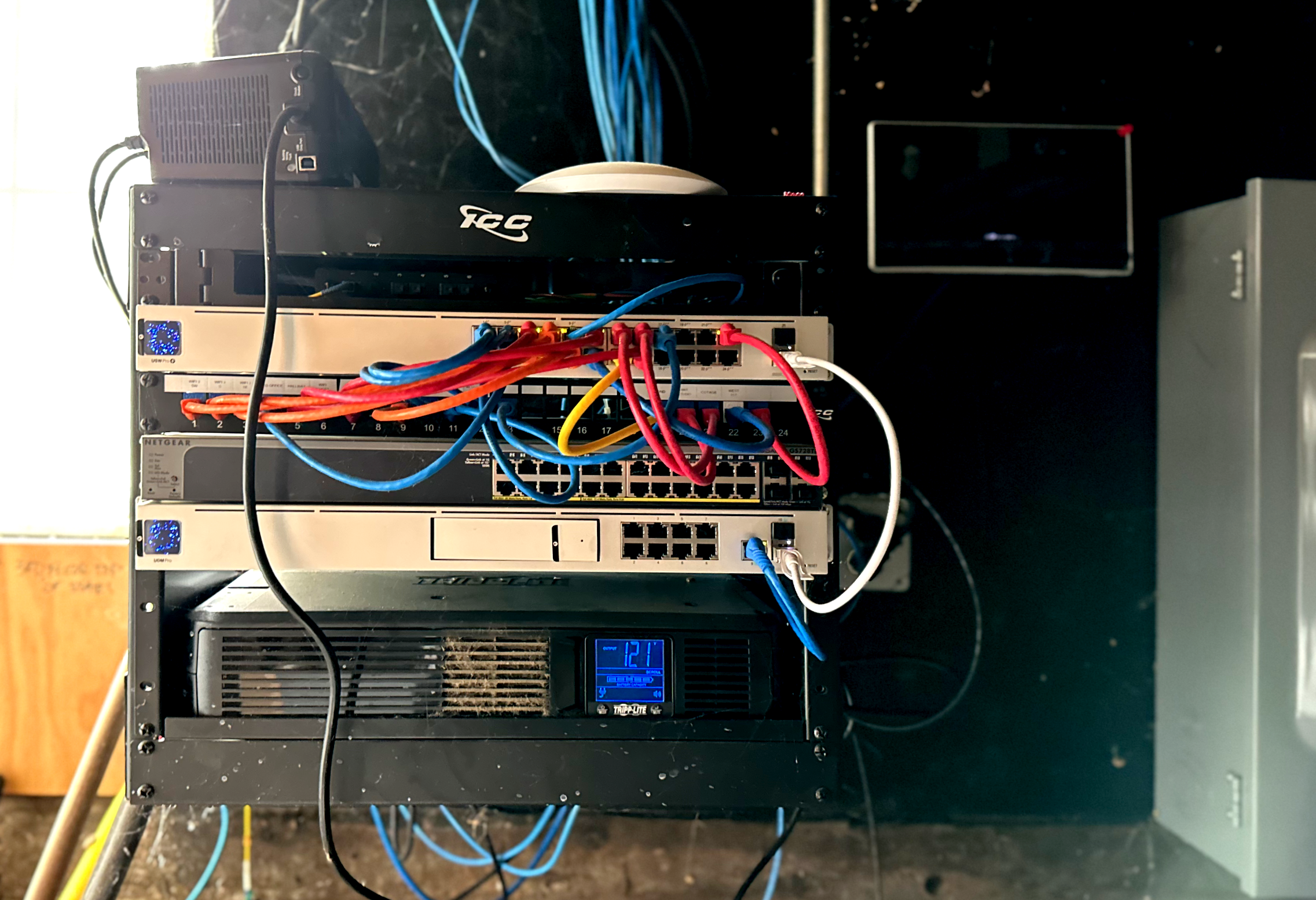
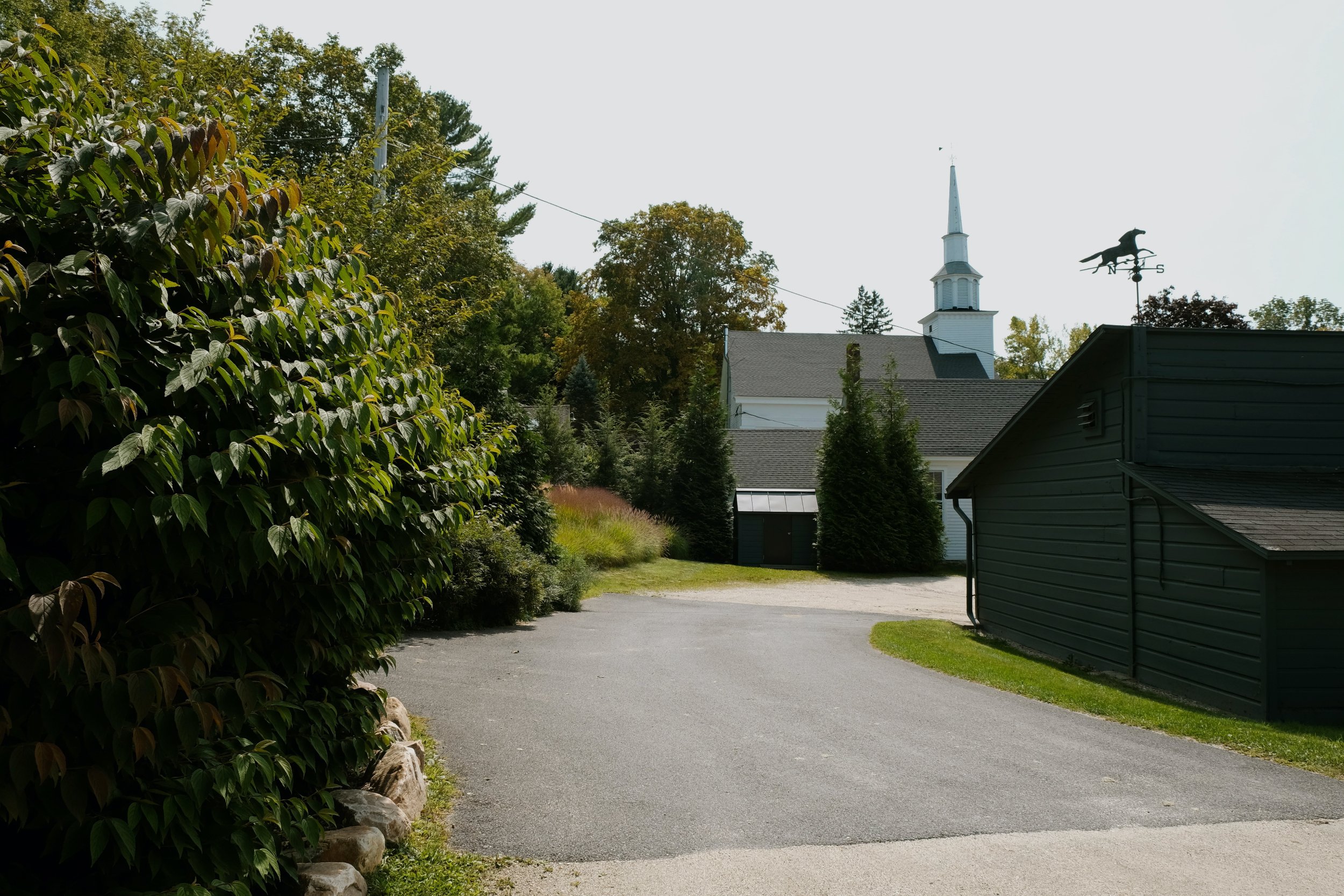
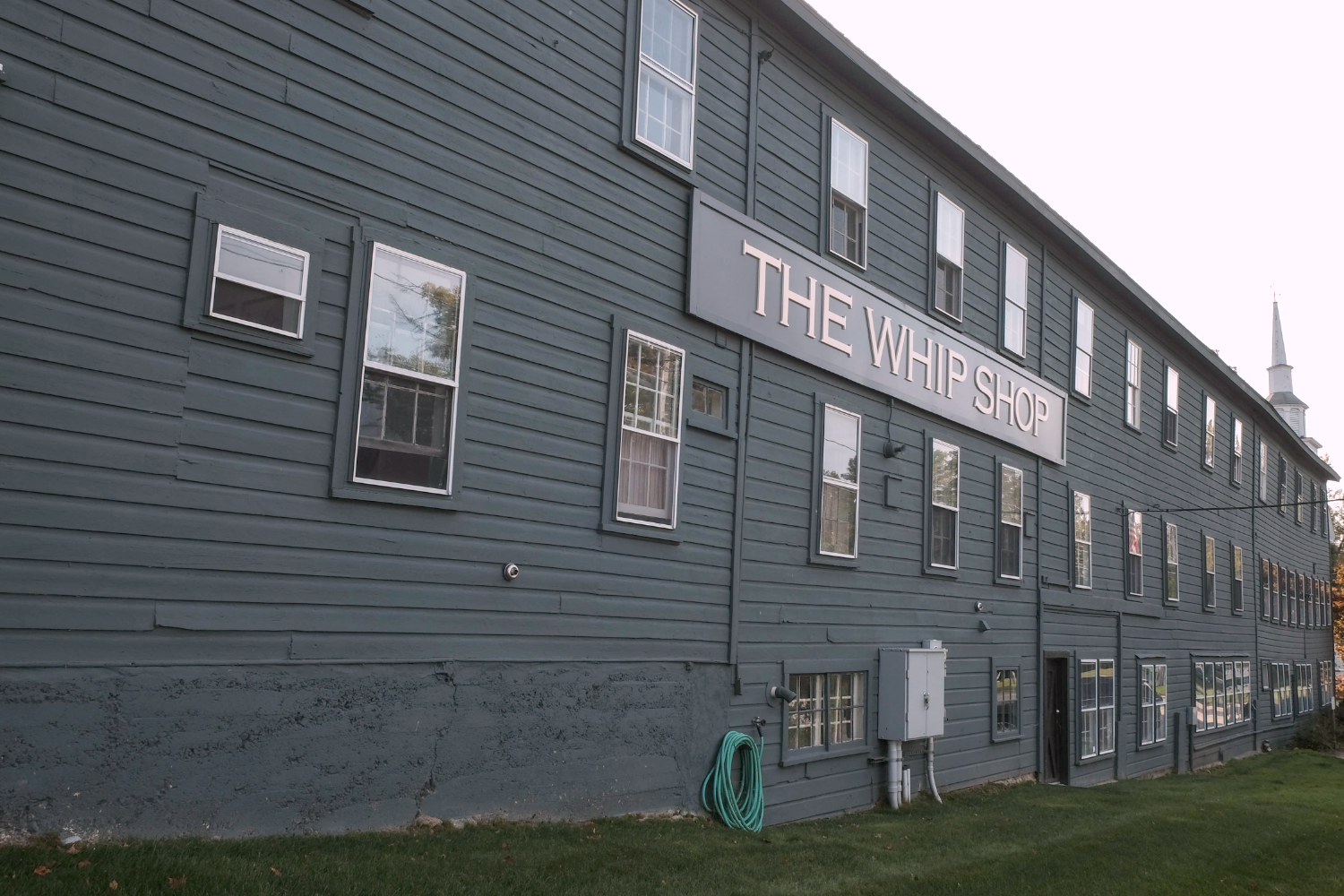
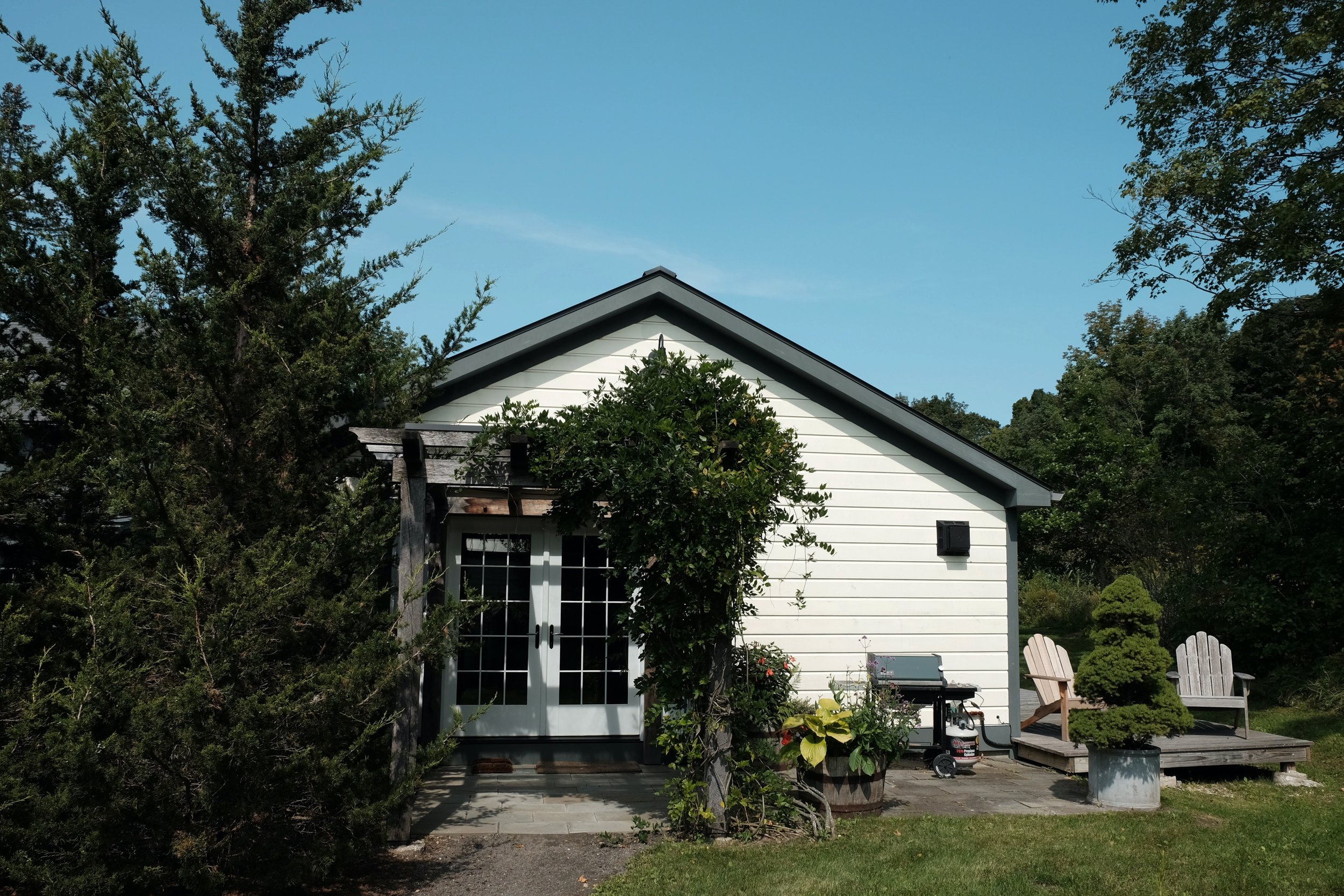


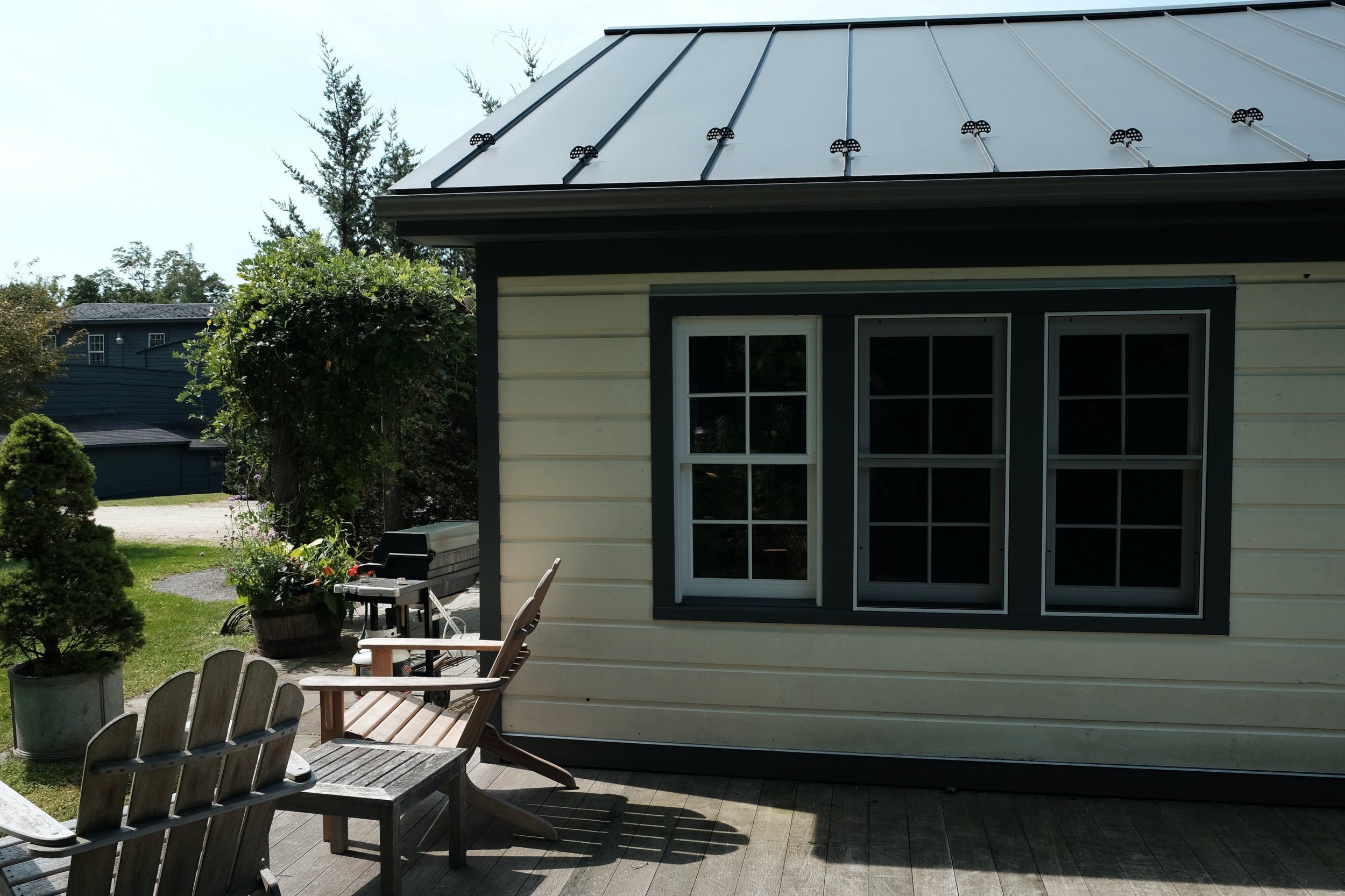
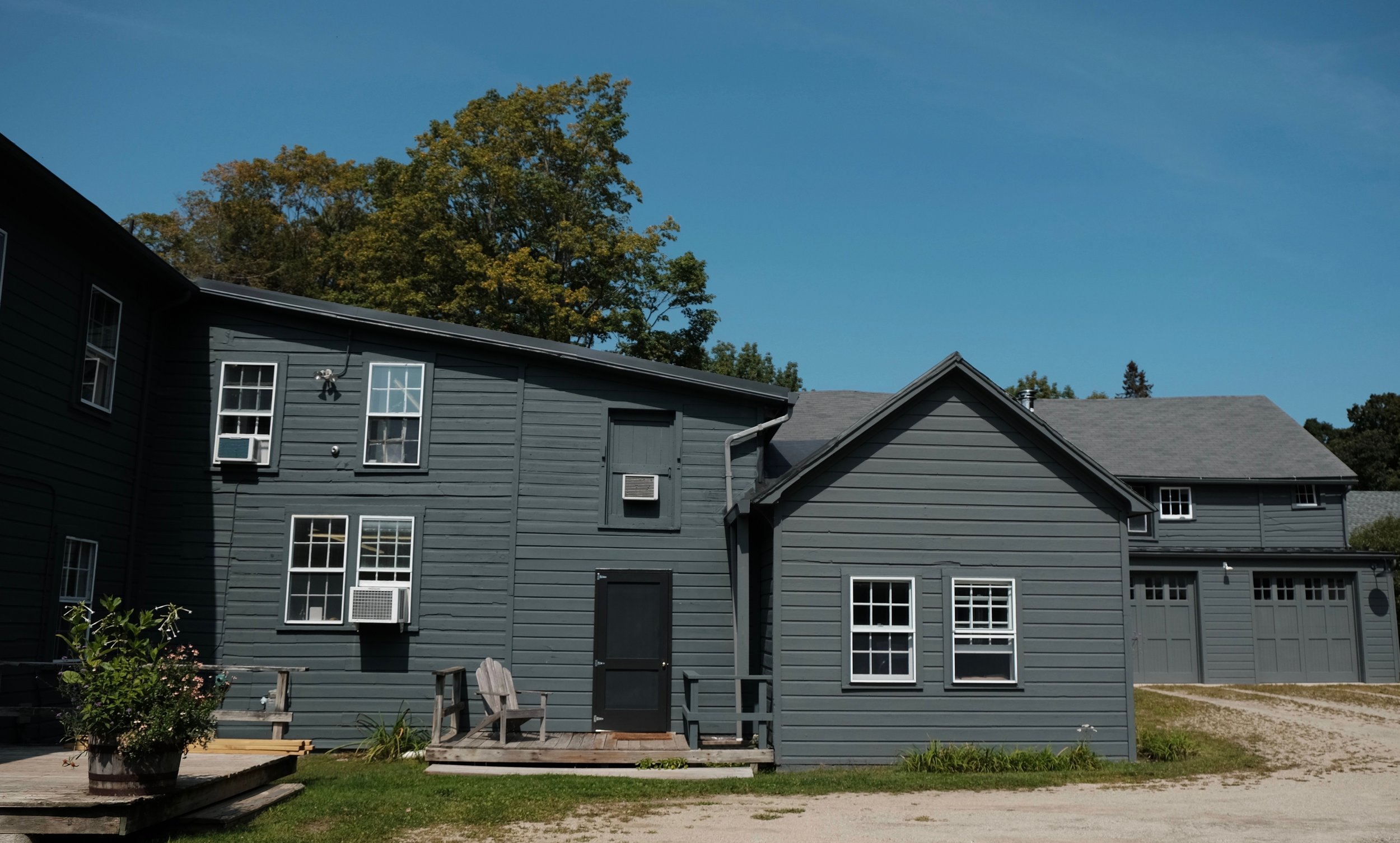
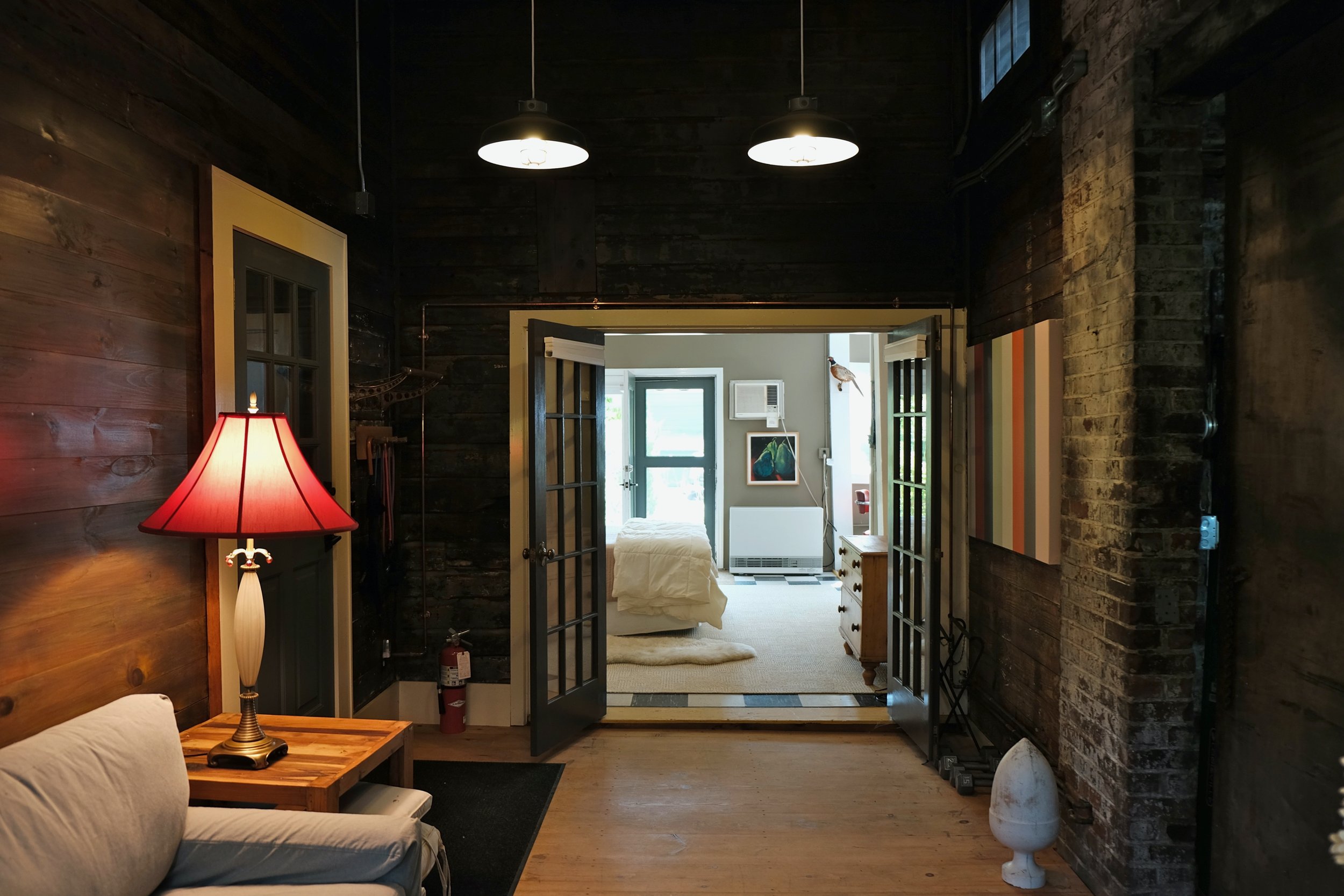
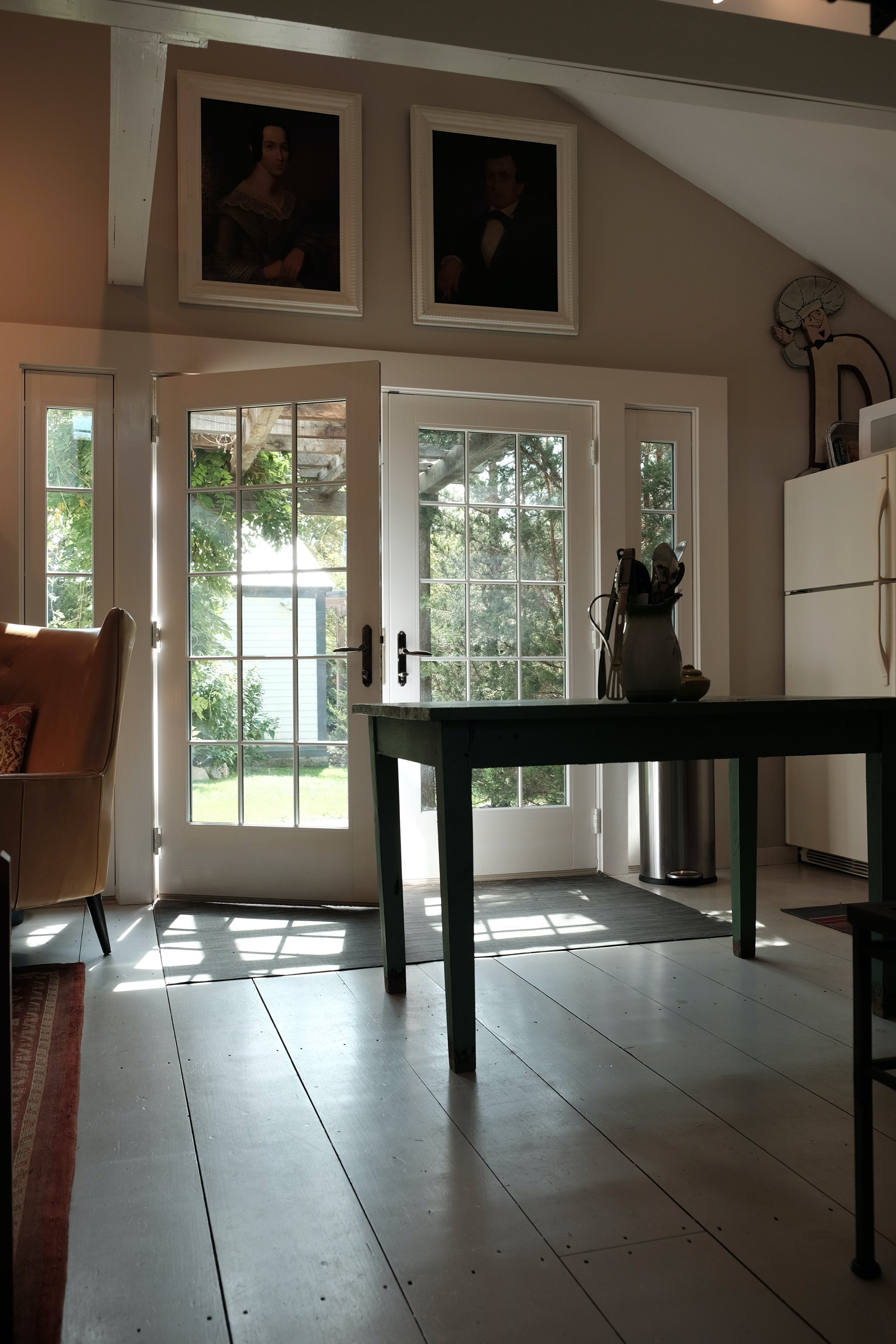
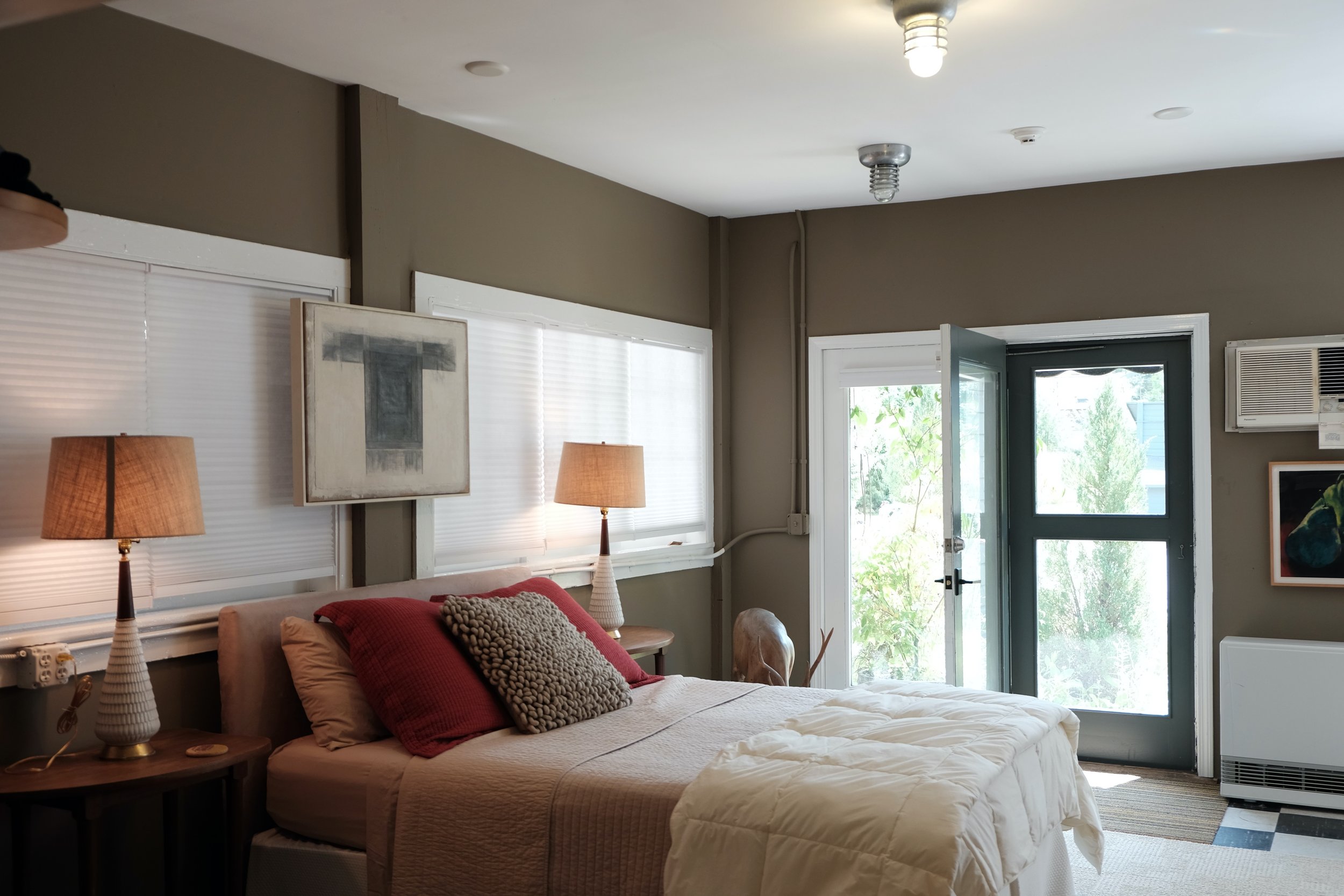

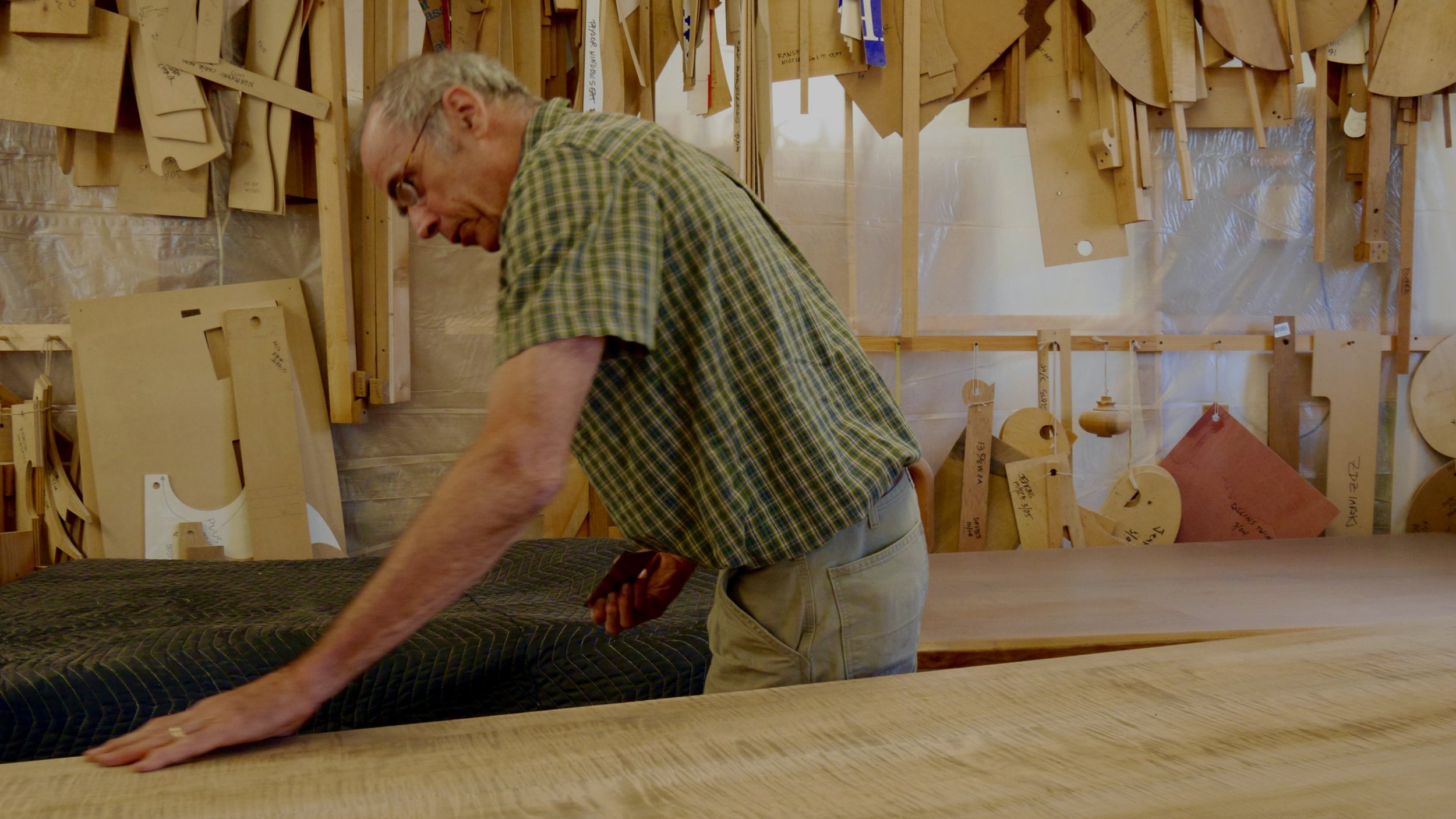





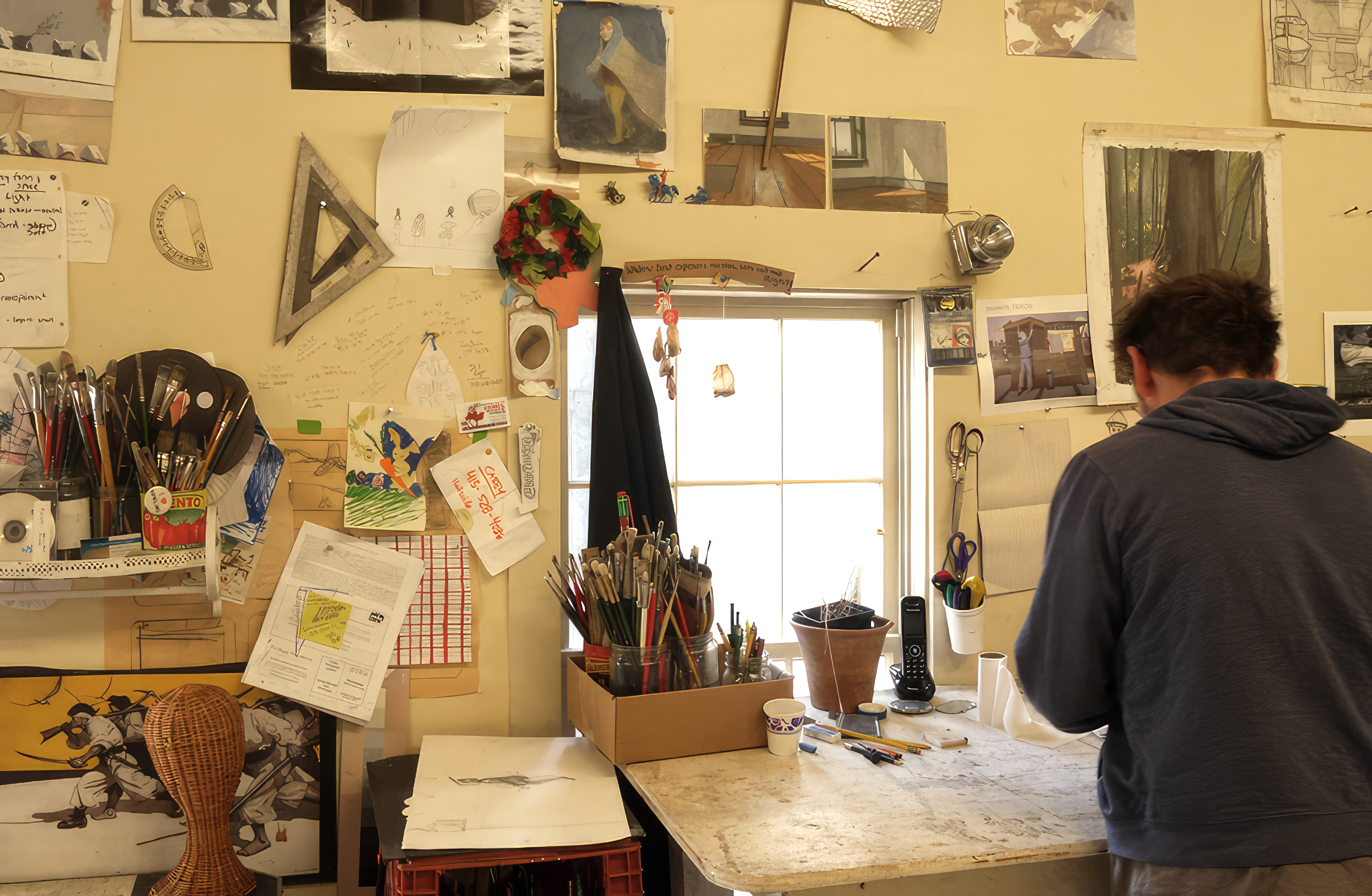


In 2019, the lure of life by the water in Maine became too much, too tempting, and called him away. Fortunately, Judy Newman who maintained her office at the Whip Shop (where she created her rhyming chapter book series, The Bobs and Tweets, under the pseudonym Pepper Springfield) was charmed into taking on the project in the middle of the pandemic.